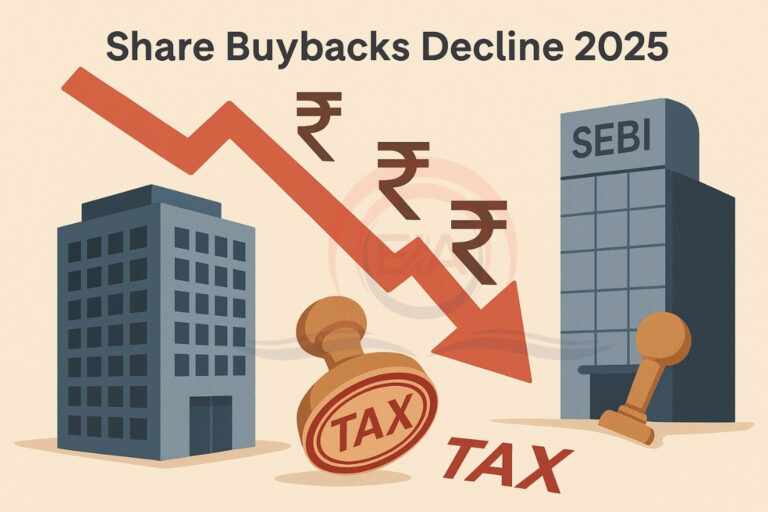Recently, share buybacks by listed companies in India have sharply declined in 2025 due to new tax rules and SEBI’s regulatory changes. These changes have made buybacks less beneficial for both companies and shareholders.
What is a Share Buyback?
- A buyback is when a company repurchases its own shares from the market or shareholders.
- It reduces the number of outstanding shares, improves earnings per share (EPS), and is often used when companies have surplus cash.
Recent Developments in 2025
- Only 4 buyback offers worth ₹186 crore were made till June 26, 2025.
- In contrast, there were 38 buybacks worth ₹8,000+ crore in 2024.
- This steep drop shows companies are moving away from this route.

Reasons for Decline Taxation Rule Change
- Effective from October 1, 2024, buyback income is now taxed like dividends.
- Earlier: Companies paid 20% tax on buybacks.
- Now: Shareholders bear tax liability as capital gains—making buybacks less attractive for them.
SEBI Regulatory Changes
- SEBI phased out open market buybacks, effective from FY 2025.
- Companies are now only allowed to buy back shares through the tender offer route, which is more complex and less flexible.
- This has discouraged many companies from initiating buybacks.
Market Sentiment
- Despite bearish markets (Oct 2024–Mar 2025), where buybacks typically increase, the new norms reduced activity.
- Some companies may have rushed to finish buybacks before October 2024.
Conclusion:
The combined effect of stricter SEBI norms and shifting tax burdens has led to a sharp decline in share buybacks. Companies now find the tender route less appealing, and shareholders are less incentivized under the new tax regime.





